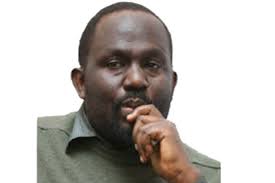Wednesday March 25 2020
The coronavirus (Covid-19) pandemic has the world on its back foot. No nation, however mighty or rich, had or yet has a new or creative solution to it, apart from locking everything down and everyone in their homes.
As of the time writing of this column, there were 362,020 confirmed cases globally, more than 15,000 deaths, and 100,475 people who had recovered. Rich nations continued to throw hundreds of billions of dollars, pounds, Euros, and all sorts of currencies at it, but the wreckage of stock exchanges continued.
While cases were building up in Africa (Latin America and the Caribbean), the continent had borne the least of the brunt, with 1,400 confirmed cases, 40 deaths, and 122 recovered as of the time of writing.
These horrific diseases, like Ebola, have tended to hit mostly Africa in recent years, so invariably many are saying the worst is yet to come, and Africa with its shambolic health systems, will be destroyed given that richer nations with robust health systems have been so hopelessly overwhelmed.
As the bodies pile up and gloom sweeps the world, it is hard to see a silver lining. But there is, especially if you look at the developments around Covid-19 from a dispassionate African perspective, or if you are a poor person anywhere in the world.
Because Covid-19 didn’t break out in Africa, and the first trail of destruction it laid was in rich China and the West, the rush to find a cure and vaccine is frenzied in ways it would never be for viruses that torment mostly Africa like Ebola.
In all, there are dozens of tests of existing drugs to see which ones, in combination with what, might work (and there are promising results). And there are hundreds of clinical trials, with China alone reported to have launched more than 100 of them to study the effectiveness of several drugs, including Chinese herbal medicine.
Giant US tech company IBM’s has unleashed “Summit”, the world’s fastest computer, and it has identified 77 drug compounds that could potentially fight coronavirus. By contrast, from August 2018 until early January this year, Ebola ravaged eastern Democratic of Republic of Congo, killing nearly 2,264 people.
The world, and indeed the rest of Africa, just went on with its merry life, not stopping to shed a tear. There was some search for treatments, but it was mostly the World Health Organisation (WHO) and a few humanitarian agencies pushing them.
The result is that, possibly within a month, there could be some medicine to treat or slow down early-stage coronavirus, and Africa will get crumbs, and its rich folks and big men and women, will get the cream.
Because the Covid-19 spread has arrived late in Africa, the continent effectively cut its waiting period for treatment or vaccine against it by about two months.
Within Africa, the poor, though they will likely be hammered most, those who survive will see some gains. The poor live crowded in slums, and travel in crowded buses, matatus, and buses, so they are less able to maintain social distance.
A newspaper article noted that poor people in Nairobi slums who don’t have water, and have to buy it by the jerrycan or pot, pay 10 times for it than those of us who get it piped to our houses.
They, therefore, can’t afford to wash their hands, let alone buy hand sanitiser (which probably cost a week worth of meals for them).
Poor and vulnerable people in Uganda, like the rest of Africa, get most social services only in crises like coronavirus, and even then, primarily because the elite want to disinfect them so they don’t bring diseases to them. Nevertheless, the desperation, still leads to the largest redistribution of wealth to the poor.
They will get free hand sanitiser and soap for the first time; water might be provided to them; supplies to the hospitals they go to will finally be provided; telco companies will reduce costs of sending mobile money; and small businesses will get cheap money.
In countries like the US, where tax cuts have benefitted mostly the very rich, and where welfare programmes for the needy were being chopped, the unthinkable has happened. Poor Americans and workers will likely get cheques for three or so months to help them pay their way through the coronavirus crisis.
Initiatives that had been hobbled by vested corporate interests like Google’s Loon project, which provides free Internet to unserved remote and rural areas, got the go ahead in Kenya now that people have to work from home.
Diseases hit the poor hardest, but in countries like ours, often times they are their greatest allies. It’s the only force powerful enough to shake some of the fruits from the national tree for them.
Mr Onyango-Obbo is curator of the “Wall of Great Africans” and publisher of explainer site Roguechiefs.com.
Twitter: @cobbo3
Originally appeared in the Daily Monitor

